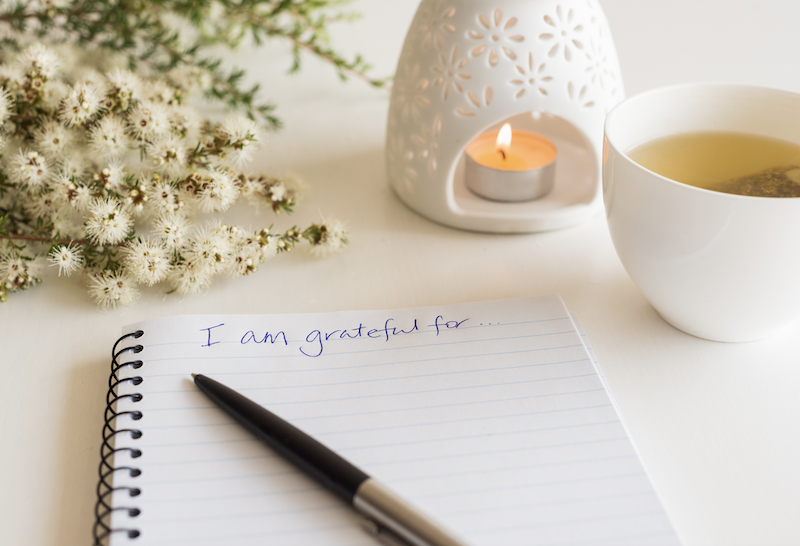We have arrived in November, a time of the year where we as Americans remember to give thanks for the many blessings in our lives. While the original Thanksgiving is not the simplistic, peaceful version most of us were taught as children, the spirit of the holiday as a time of giving and practicing gratitude still is worth honoring.
Practicing gratitude every day, not just on Thanksgiving, can make a significant impact on our health. According to an article in Psychology Today (2015) that reviewed the scientific benefits of gratitude, it has been shown that being grateful can help you make friends, experience less aches and pains, exercise more often, get regular health check-ups, increase feelings of happiness, reduce depression, enhance empathy, sleep better, have better self-esteem, and increase your mental strength.
So how does one practice gratitude? Here are a few of my favorite ways to do so:
- Write out 3-5 things each morning that you are grateful for. They can be big or small. In fact, sometimes writing out the small things, like your partner bringing you a cup of coffee, or your child drawing you a picture, can help you to recognize all of the amazing things there are to be grateful for in this world.
- Say grace or a blessing before eating your meals. Taking a moment to be thankful for the food in front of you, and to acknowledge that not everyone has this gift of plentiful food can be a profound practice. It does not have to be routed in religious practices; a simple “thank you” can even suffice. It has also been shown that people who say a grace or blessing before eating will eat more slowly and digest their food better, so there is a health benefit too!
- Take in acknowledgement when it is offered to you. If someone says “thank you” or compliments you on something, truly allow yourself to accept that gift, and say “thank you” or “you’re welcome” in return, as applicable. I read an article years ago that spoke to how we as a society have gotten away from saying “you’re welcome” in response to “thank you,” and how that can make a difference in the well-being of both people to actually say “you’re welcome.” When it comes to compliments, so many of us are quick to brush them off, stating that we got a dress from the clearance rack or we “just” followed a recipe online that someone else created. Stop yourself from making those extra qualifying comments, and instead simply reply, “thank you.” Teach yourself that it is ok to accept the compliment, no matter what. When you brush off compliments, you are insulting the person who gave it to you, insinuating that their opinion is incorrect. So take it in, and feel gratitude that they noticed you or your gifts.
- Walk in nature and notice your surroundings. We live on an incredible planet, that is filled with beauty. Allow yourself to experience the awe of being here, now. Feel the crispness of the air, the crunching of leaves under your feet, the sound of the wind rustling through the trees, or admire the color of the sky. Too often, we get busy and do not take the time to truly appreciate and feel gratitude for this human experience and our environment. We are blessed to live in these gorgeous mountains, surrounded by stunning lakes and wildlife. Breathe it all in.
Being present in this moment, and taking time to acknowledge all of the things we are grateful for in this life can make a profound difference in your life. This Thanksgiving, and year-round, I am grateful for this amazing community we are a part of, and for all of you.
References:
Morin, A. (2015). 7 Scientifically proven benefits of gratitude. Psychology Today. Accessed October 6, 2021: https://www.psychologytoday.com/us/blog/what-mentally-strong-people-dont-do/201504/7-scientifically-proven-benefits-gratitude
Note: This article was originally published in a local magazine for their November 2021 issue. For citation references, please contact Dr. Yocum at https://jenyocum.com/contact/


Recent Comments